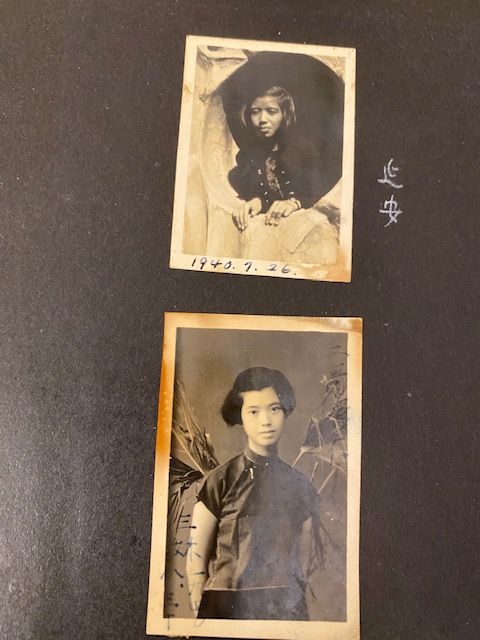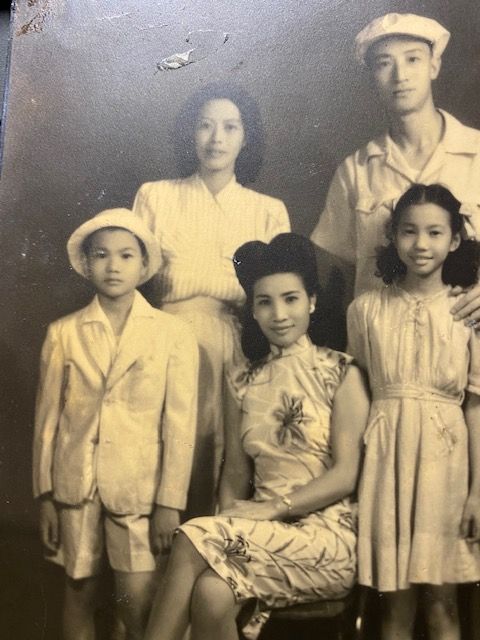
李怡,1936年生,香港知名時事評論家、作家。1970年曾創辦雜誌《七十年代》,1984年更名《九十年代》,直至1998年停刊。後在《蘋果日報》撰寫專欄,筆耕不輟半世紀。著有文集《放逐》、《思緒》、《對應》等十數本。 正在Matters連載首部自傳《失敗者回憶錄》:「我一生所主張所推動的事情,社會總是向相反趨向發展,無論是閱讀,獨立思考或民主自由都如是。這就是我所指的失敗的人生。」
Memoirs of a Loser 08: Those Times
"Success is not the end, failure is not the end, only courage is the eternal." Churchill's words, is the theme of my "Memoirs of a Loser".
Instead of being proud of having courage, I often blame myself for not having enough courage. Under the heavy blows of the above-mentioned power, I still remain in the circle of the left, which is a weak manifestation of lack of courage to break free from the shackles under the pressure of life and career. The other side of weakness is not having the courage to deny one's past, and not having the courage to deeply examine whether there are problems with long-formed thoughts and values. Denying yourself is very painful and requires a lot of courage.
Today's young and middle-aged people do not understand why the older generation is so obsessed with socialism and patriotism, and why after the Communist Party has exposed its totalitarian face, it still does not leave its sphere of power? In fact, just think about why the CCP succeeded? Why did the Kuomintang regime collapse on the mainland? Why did most of the top intellectuals and writers at that time support the CCP and oppose the Kuomintang regime during the civil war? Why do most political parties in China, other than the Kuomintang, vote for the Communist Party? Why are many overseas intellectuals defecting to China, as wise as Chen Yinke who came to Hong Kong and will return to the mainland? If you think about these issues, you can generally understand the social situation at that time.
Compared to the people of that era, I am a younger generation. But the social consciousness of that era hasn't changed in my formative years, and I'm still deeply influenced by it. At that time, most people were pro-CCP, not because they could get any political or economic benefits, not because of fame and fortune, but because of their social and political awareness. At the beginning of the CCP’s establishment, many people saw that the CCP was full of vigor and prosperity. Many intellectuals in mainland China were full of hope to build a new China. The leftists in Hong Kong were also willing to work hard for the “patriotic cause” on the fringes of society, and were willing to give up the upward mobility. Chance. Because of the ideal that "socialism can save China".

At the end of the Manchu and Qing Dynasties, China began to introduce the enlightenment ideas of freedom, rule of law, democracy, and science from Western learning, but the enlightenment was still in its infancy, and it was overshadowed by the nationalist consciousness of salvation aroused by foreign aggression. In the first half of the twentieth century, the social and political trend of thought in China was that salvation overwhelmed the spread of Enlightenment thought. On the other hand, with the rise of the Soviet Union after the October Revolution in Russia, the socialist trend of thought became popular all over the world. The pursuit of equality of socialism not only echoes the ideal of great harmony of ancient Chinese philosophy, but is also considered by progressives to turn the ideal of ancient philosophy into a feasible reality. In Sun Yat-sen's National Revolution, he invited Soviet advisers and put the Three People's Principles into practice as a policy of "joining Russia, joining the Communist Party, and helping farmers and workers". At that time, there were few intellectuals who were not tainted with socialist consciousness, and no intellectuals believed that people should be unequal, there should be differences between rich and poor, and people should be allowed to exploit people. Using socialism to save China was the social thought of that era.
To turn the utopian ideal of equality for all into a plausible reality, Russia relied on the leadership of a Leninist party. The so-called Lenin-style party is a tight small organization formed by a small number of professional revolutionaries in the party center. The implementation of the so-called "democratic centralism" means that the central government is willing to listen to the opinions of party members and the general public. Joining the party requires strict examination. After joining the party, subordinates obey their superiors without personal will, which is an iron law. Another characteristic of Lenin-style parties is that they advocate the coercive force of violence, with the party leading the army, the party leading the government, and one-party dictatorship .
Following the model of the Communist Party of the Soviet Union, the Kuomintang was transformed into an imperfect Lenin-style party, while the CCP completely inherited the Lenin-style party organization. regime, and then the Kuomintang and the Communist Party carried out decades of alliance and struggle. In the end, the Kuomintang regime was defeated and moved to Taiwan, forming a situation of confrontation across the Taiwan Strait.
National salvation comes first, national salvation overrides enlightenment, equality comes first, and equality overrides freedom. This was the common national consciousness of progressives in that era. It is also the foundation of the social consciousness of the CCP's establishment in 1949.
In the process of growing up, from reality and from books, I also continue to accumulate this awareness. It can be said that it has been deeply rooted in the brain.

(Article published on May 7, 2021)
"Memoirs of a Loser" serial catalog (continuously updated)
- Inscription
- break through
- Inside the circle outside the circle
- murderous
- torment
- hurt
- turbulent times
- choice
- that age
("Memoirs of a Loser" was previously serialized in "Apple Daily" and is now being continuously updated by Matters)
Like my work?
Don't forget to support or like, so I know you are with me..
Comment…